Tory leadership contest: What's on the minds of party members?
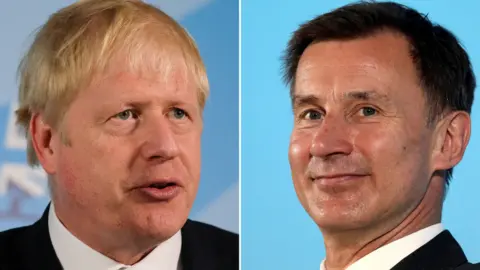 Getty Images
Getty ImagesWith ballots beginning to land on doormats, Conservative Party members will soon choose not only their new leader but the country's next prime minister.
When it comes to things such as their age, wealth and where they live, the 160,000 or so paid-up members may not be particularly representative of the rest of the country.
But what exactly is on their minds? And how do their views compare with those of the population as a whole?
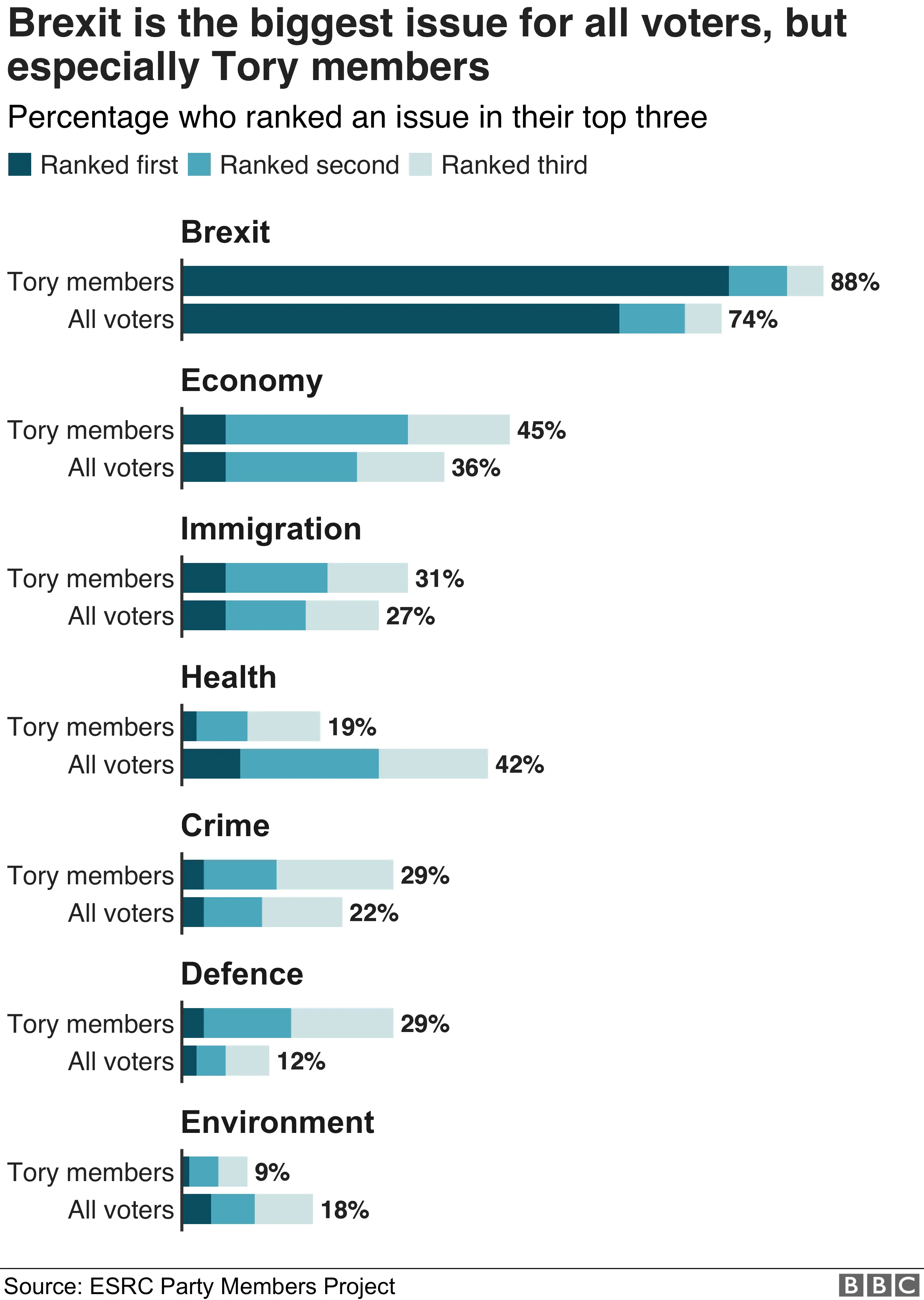

Brexit
Most people appear to agree that Brexit is crucial.
When we asked about it in a survey at the very end of last year, some 60% of all UK voters ranked it the most important issue and 74% of them placed it in the top three.
Still, that's nothing compared with Conservative Party members surveyed, of whom, 75% ranked it first and 88% in the top three.
But just because voters and Tory members agreed Brexit was important, it does not mean they saw eye-to-eye on the issue.
This was seen when we asked people how they would vote in a referendum that gave them the choice between remaining in the EU and leaving without a deal.
A stunning 76% of rank and file Conservatives plumped for no deal - an option picked by only 35% of voters as a whole.
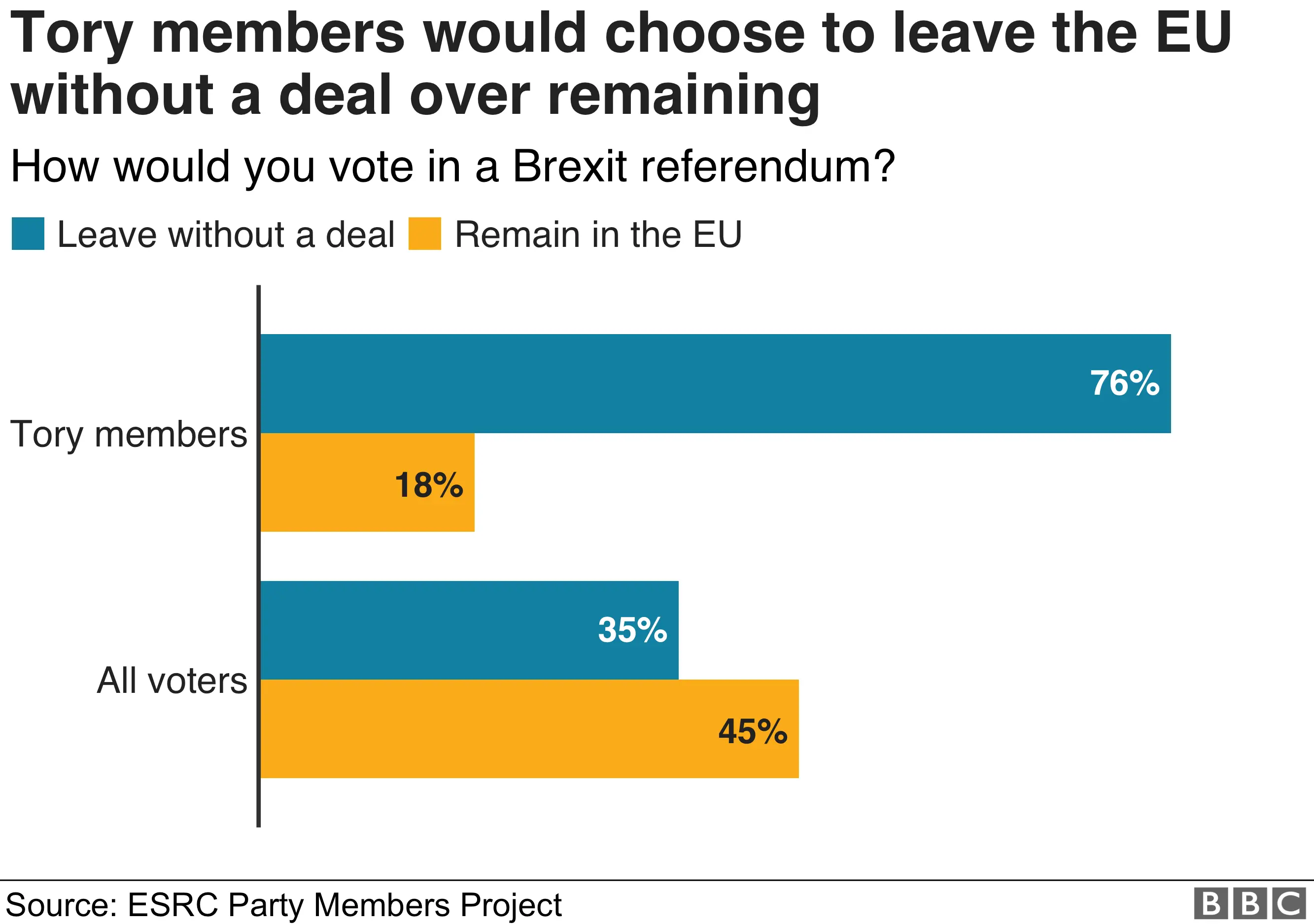
That was partly because only 18% of the Tory party members believed that no deal would cause serious disruption to, say, supplies of foods and medicines, compared with 35% of the voters surveyed who reckoned it would (and a further 21% who weren't too sure).
If, on the other hand, the UK held another referendum and ended up staying in the EU, most of the Tory members would feel "betrayed" (58%), "angry" (15%) or "disappointed" (6%).
The figures for voters as a whole were 26% "betrayed", 7% "angry" and 8% "disappointed".
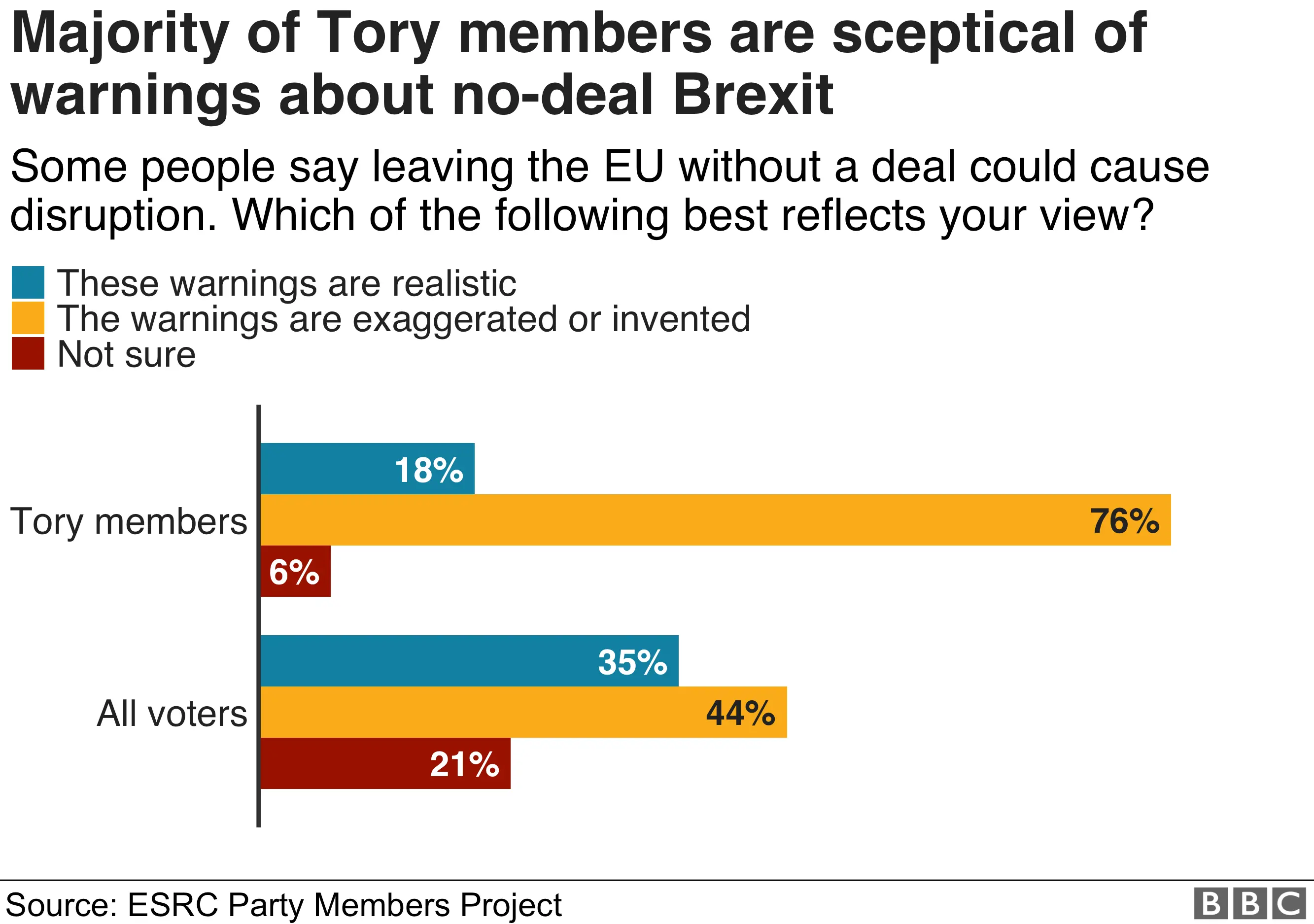
The Economy
Before the 2016 Brexit referendum, the economy was often ranked as the most important issue.
But, right now, unemployment, interest rates and inflation (ie price rises) are all pretty low - which could mean people are currently relatively relaxed.
That said, neither Jeremy Hunt nor Boris Johnson - the two leadership contenders - can afford to forget about the economy: 36% of voters and 45% of Tory members surveyed placed it in their top three issues.
Once again, though, there were some significant differences between between the Conservative grassroots attitudes and those of the voting population as a whole.
For instance, most of the voters (51%) thought government should redistribute income from the rich to the poor, with only one in five (19%) disagreeing.
The Tory members, however, thought the opposite - a mere 15% favoured redistribution, while 63% opposed the idea.
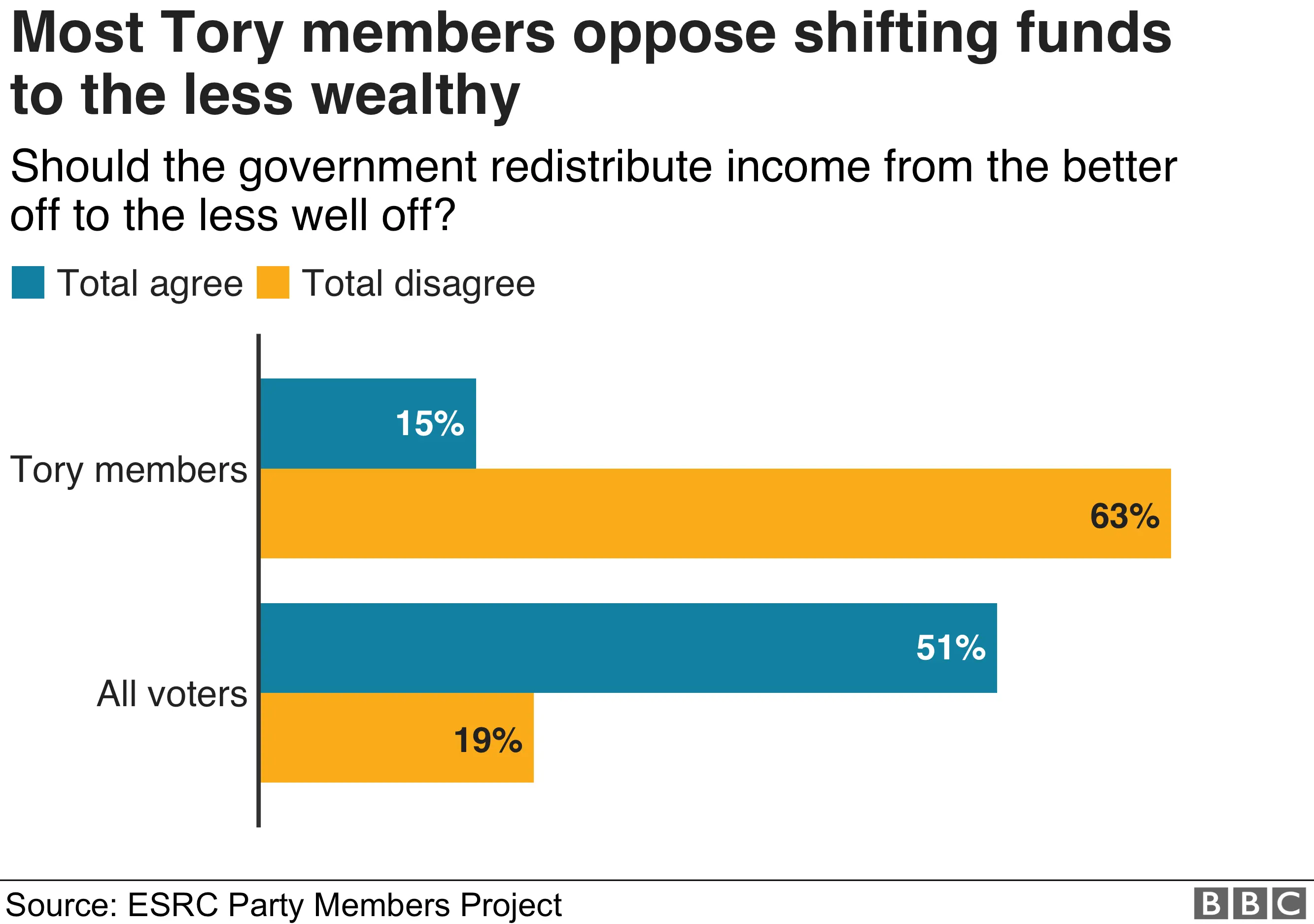
Tax
However, that is not to say Conservative Party members care only about tax cuts for the rich.
True, a recent survey of the membership suggests most (58%) warmed to Boris Johnson's suggestion the threshold for paying higher-rate tax should be raised to £80,000 a year.
However, the same survey also suggests 63% think abolishing the top rate (paid by those earning over £150,000 a year) is the wrong priority.
And, perhaps even more importantly, 60% of Tory members think any extra money should be spent on improving public services rather than tax cuts.
Immigration and crime
Tory members and UK voters as a whole both believe other issues, such as immigration and crime, should be priorities for the country, surveys suggest.
Both groups also broadly agree about the way immigration and crime should be dealt with.
Immigration was placed in the top three by 31% of Conservative Party members surveyed and by 27% of the voters overall.
We believe, from polling, the public has long wanted to see a reduction in numbers coming in.
A recent survey of Tory members indicated there was only one group of migrants most (51%) of them wanted to see more of - skilled, well-educated people looking for highly paid jobs.
Low-paid, low-skilled workers were deemed particularly unwelcome, as were Muslim migrants.
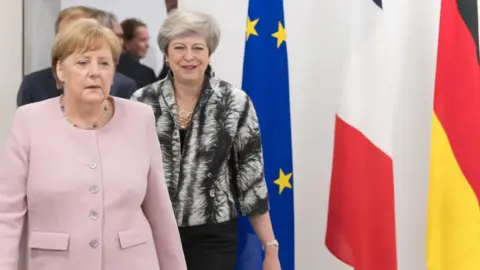 Getty Images
Getty ImagesOn crime, just over a quarter (29%) of the members and just under quarter (22%) of the voters named it as one of the three most important issues facing the country.
Again, both groups had similar views on the matter: 76% of the Tory members said people who broke the law should be given stiffer sentences - something 67% of the voters also agreed with.
Other issues
There are, however, other policy areas where the Conservative members and the voting population as a whole held very different views.
Defence, for instance, was placed in the top three most important issues by 29% of the Tory members but only 12% of the voters.
By way of contrast, benefits and universal credit was placed in the top three by 23% of the voters but only 11% of the Tory members.
Similarly, education and the environment were low down the list of voter priorities, mentioned as top-three issues by just 15% and 18% respectively.
But the voters were still twice as likely as the Conservative members to rank them as such.
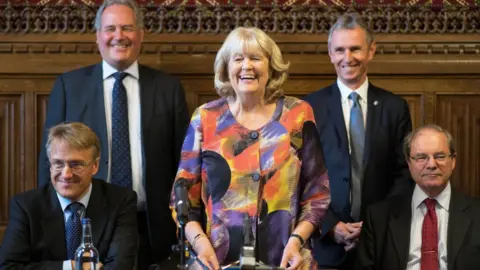 Getty Images
Getty ImagesHealth
The biggest gap, however, between the general public and the Tory grassroots may be on health.
For the voters as a whole, it was clearly the second most important issue after Brexit, with 42% of them ranking it in their top-three. Only 19% of Conservative Party members said the same.
In short, the issues that need to be addressed in order to win over the Conservative grassroots are not necessarily those that will resonate with voters as a whole.
Since Boris Johnson and Hunt are vying to become not just Tory leader but the UK's prime minister, they might want to take note.

About this piece
This analysis piece was commissioned by the BBC from experts working for an outside organisation.

Edited by Tom Edgington
Charts by Mike Hills
